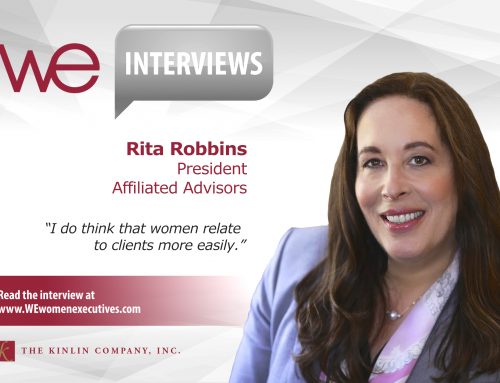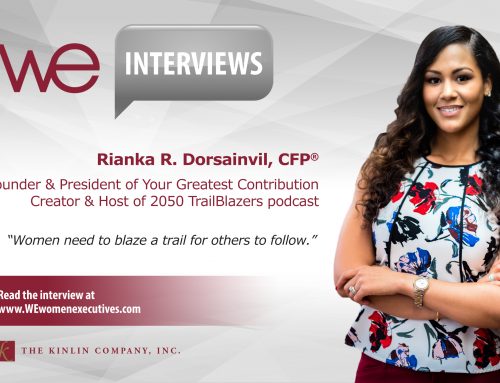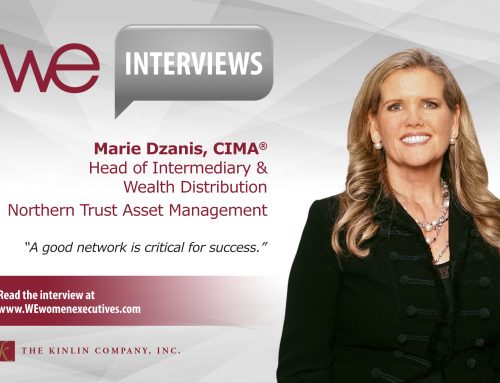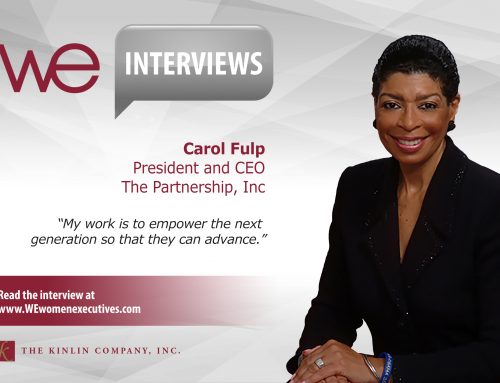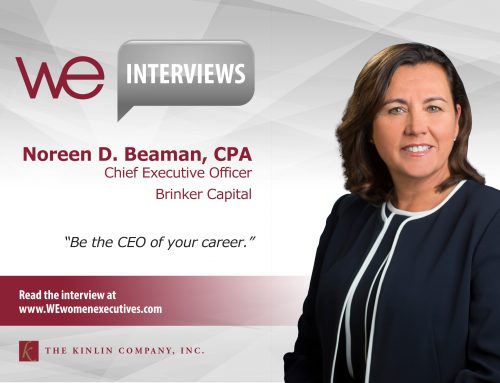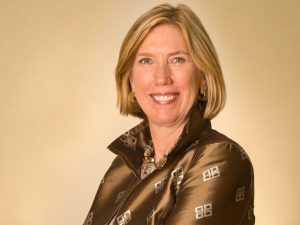 Doris Meister
Doris Meister
President of U.S. Markets, Tri-State
BNY Mellon Wealth Management
It’s evident from the outset: Doris Meister, President of U.S. Markets, Tri-State for BNY Mellon Wealth Management, is not one to shy away from a challenge. Meister oversees New York, New Jersey and Connecticut, with almost $30 billion in assets, 400 employees and 8 direct reports.
Within the US, Meister and colleagues, Tim Tully and David Emmes, are charged with running BNY Mellon’s core wealth management business. Collectively, the team has approximately $90 billion in assets and is comprised of approximately 1,000 people that serve individuals with a minimum of $2 million dollars in investible assets as well as smaller not-for-profit organizations.
I recently had the opportunity to sit down with Meister and talk about a variety of topics. In Part One of our interview, we discussed what initially drew her to the challenging, fast-paced world of wealth management and what she’s learned over the course of her career.
A love of markets and fast-paced environments
Having read that Meister felt that ‘banking was in her blood’ (her grandfather was a banker and her father an economist), I was eager to delve a bit deeper into her fascination with the industry. What was it, I asked, that so intrigued her about the financial sector?
“I was actually pre-med when I first went to college, then I started taking economics classes and became fascinated. My dad had degrees in both engineering and economics and my grandfather was a banker at Manufacturers Hanover Corporation and then president of the Prudential Savings Bank in New York. In other words, economics and finance were part of the family environment.
“I grew up in a pretty affluent area, but my parents had a very strong work ethic, which they instilled in me and my three siblings. So after graduating from Smith College, I decided I was going to work in banking, because it’s so central to business and the economy. I thought it would be a good place to start, and then I could figure out more specifically what I wanted to do because I’d be introduced to all sorts of industries.
“I joined the Harris Bank in Chicago and entered their management training program. As part of the program, I rotated through different departments for months at a time and dug in to see what each business was like. I happened to be assigned to the foreign exchange advisory group, and I realized that that’s where I wanted to be.
“I soon learned that I liked fast-paced business environments that are market driven. In foreign exchange, one is challenged to quickly figure out how changes in the economy—like a decrease in the price of oil—or the geopolitical environment affect businesses and the markets. I also loved the relationship aspect of business. I had a number of multinational clients that I worked with on a daily basis.”
A belief in my abilities
Having established Meister’s fascination with finance, I next asked what set her apart from so many others in the sector. In particular, I inquired, how had she navigated her way so successfully through what is predominantly a male-dominated industry?
“I think it’s a couple of things. My dad was really smart and analytical, and I inherited that analytical mindset. My mom is an amazing relationship person who is also very organized, and I inherited those abilities from her. As the oldest of four, I was very close to both my parents, particularly my father, and from the time I was very little he instilled the belief in me that, if you have the talent and the will, you can do it. He was very supportive of women, and I never grew up with this script that my only goal was to get married and have a family.
“Instead, the script for me was, ‘Make something of your life; don’t limit yourself in what you’re going to do.’ My parents were really good at bringing us up in an environment that minimized jealousy and competition. Instead, the message was, ‘Each of you is an individual and each of you has unique gifts.’ I was really very lucky; I had amazing parents.
“I also think that my relationship with my brothers, who were very athletic, was important. If you grow up in an environment where the males in your family are treating you like a peer and you’ve got a sense of humor, you are comfortable working with men.
“Another very important thing: I went to an all-girls high school and a women’s college. These environments reinforced the same messages that my family was giving me, namely, ‘If you want to edit the yearbook, then edit the yearbook,’ and ‘Somebody’s got to be student body president, so why not you?’ The message throughout my whole educational experience was ‘Of course you’re going to do it.’
“I went to Smith, which is a very special place. I’ve been getting more involved with the school again recently, and I’m developing a renewed appreciation for just how special its heritage is. The people who choose to go there are pretty grounded, but also highly accomplished, which is a great combination.
“Getting back to the question of thriving in a male-dominated environment, though, I gave a lot of thought to figuring out which path to take along the way. When I first started out working at Harris Bank, there were quite a few women around. But after business school, I joined McKinsey. At that time, McKinsey had one female partner globally and all of my clients were men.
“Still, being at McKinsey was a phenomenal experience; I was there for five years, in the financial institutions group for most of the time. I was advising CEOs and division heads of major financial institutions. McKinsey’s standards are extremely high. It was a very important formative experience for me and laid the foundation for my career in financial services.
“I had one very strong mentor at McKinsey who is a great talent in this business. I had dinner with him a couple of years ago and he said ‘You know, we weren’t that good at managing women when you were at McKinsey. You should never have left McKinsey and I blame myself for that.’ I was able to let him know that while I was good at consulting, I’d much rather be running a business. I did really appreciate his honesty. And I know that both he and McKinsey have worked hard over the years to manage diversity well and to advocate for diversity as a driver of business success.”
A reputation as a strategic thinker
Clearly Meister’s home life and educational experiences stood her in good stead for realizing success in her chosen profession. Yet I still wondered at what point in her career she had truly realized that she could leverage her background and experiences to achieve all her goals. What realizations had she had, I asked, that other women might learn from?
“One summer at McKinsey, I was managing an amazing summer associate, who led me to First Boston. She had gone there after finishing Harvard Business School and convinced me to join them. Because of rapid changes in the business, they needed someone who could bring strategic consulting skills to the Fixed Income Sales and Trading area. It was a great decision to make the change. I started as the first chief of staff for Fixed Income Sales and Trading. After a couple of years, I went to work for a great person who is to this day one of my favorite people on the planet. He gave me my first business to manage. It was complicated and a turnaround.”
That seems like a big step at a relatively young age, I interjected. Why, I asked, did Meister think that he had given her such a large task?
“I had a great internal brand as a problem solver, strategic thinker and someone who got results. This was a business that needed to be fixed, and I had people who were willing to follow me. I had earned the respect of my colleagues and had people in management advocating for me. After succeeding with the turnaround, I realized ‘This is what I want to do. I want to be a general manager—CEO, President, or COO. I want to run businesses.’
“In managing the progress of your career, I think the most valuable relationships are with those who are willing to put you in a job. They’re effectively sponsoring you, saying ‘I want you and I’m going to put you in this leadership role.’
“In addition to having the skills and drive, it is important to be able to calibrate your behavior so you fit in appropriately. This is particularly important for women in male-dominated industries. At First Boston, I was working on the trading floor and I knew how to be ‘one of the guys’ without being one of the guys. That is key. Having two brothers and a father that I was close to helped me know how to handle myself. And having a good sense of humor is invaluable. Being a woman in business is like trying to thread the eye of a needle—figuring out the calibration behavior is very, very important and it’s tricky. You have to be a very good observer and you have to develop a very good inner sense for when you’re stepping over the line versus where your male colleagues feel comfortable with you.”

